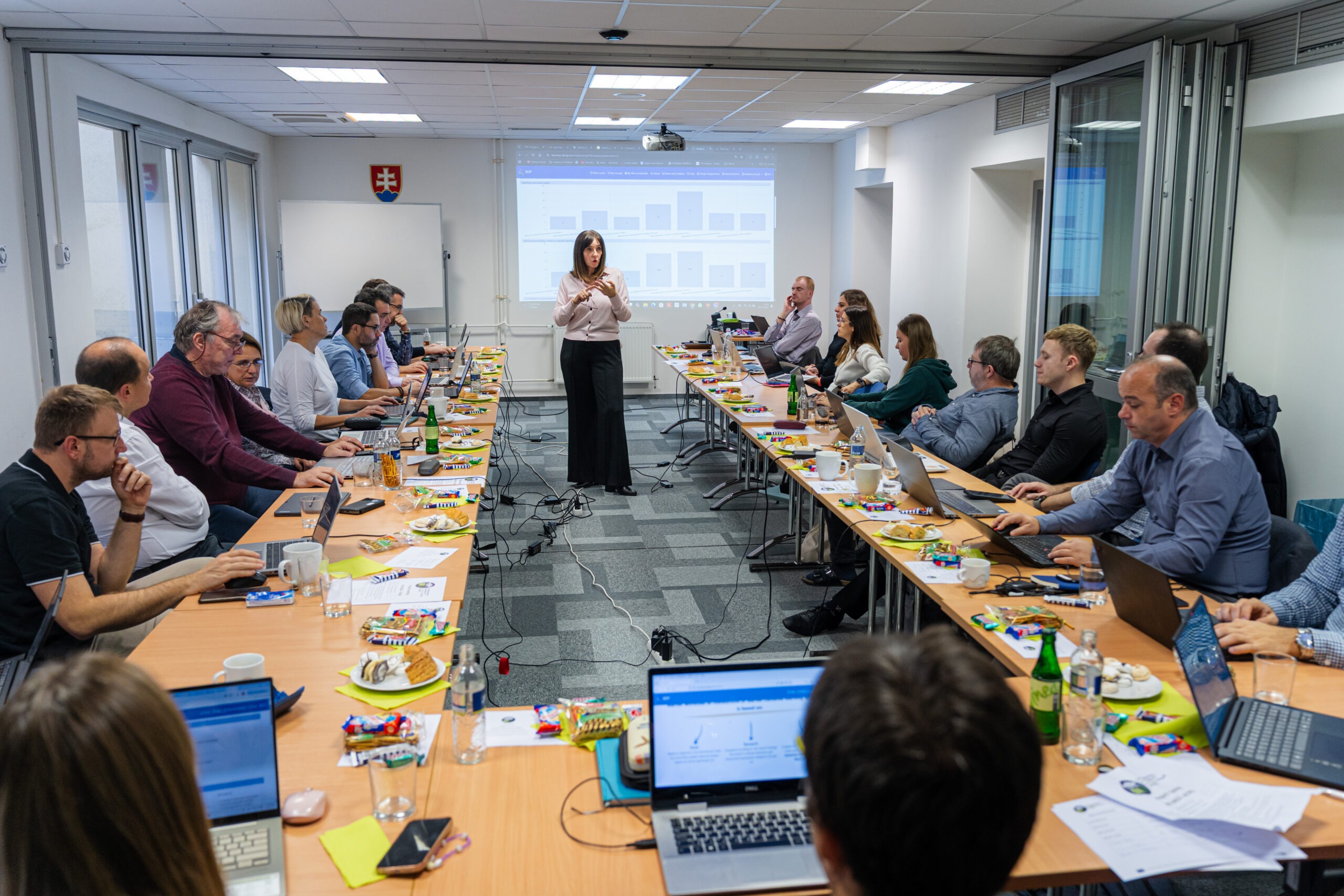The official opening of the symposium began with a performance by the academic choir Polyfon, consisting of employees of the Faculty of Organizational Sciences, conducted by Sanja Bogosavljević-Antović. Following this, on behalf of the Dean Prof. Dr. Milan Martić, the guests, participants, and students were greeted by the Vice Dean for Strategic Development and Corporate Affairs, Prof. Dr. Marko Mihić. He emphasized that SYMORG is one of the most important scientific research pillars of the Faculty of Organizational Sciences, especially intriguing for young researchers and all those involved in solving real business cases and problems. He expressed his belief in the intellectual and human potential of this and future SYMORG conferences and the readiness to channel knowledge, energy, and creativity towards concrete scientific results. The attendees were also addressed by the President of the Program Committee, Prof. Dr. Milica Kostić-Stanković, and the Co-chair of the Organizational Committee, Prof. Dr. Ivana Mijatović. The opening ceremony was complemented by a performance by Tamara Naumović, an assistant from the Department of E-business, who is an award-winning poet. She presented her poetic performance “Performative Deconstruction of Poetry: Theory and Practice of Love Games.”
Special guests from abroad and keynote speakers included Prof. Dr. Swee Hoon Ang from the National University of Singapore, who gave a lecture on Harnessing AI for Business to Optimize Quality of Life, and Prof. Dr. Dimitris Karagiannis from the University of Vienna, who spoke on AI Models for Conceptual Modeling – Current Developments and Future Opportunities.
On the second day of the International Symposium of the Faculty of Organizational Sciences SYMORG 2024, Prof. Dr. Jelena Pokimica from Boise State University in the USA delivered an invited lecture on Considering AI in Organizations: What does it mean for Organization Development?
After the keynote lecture, participants in various sections discussed the key topics of the Symposium, sharing new insights, perspectives, and knowledge in the fields of management and information systems and technologies. The Symposium program included sections on: Integrated Humans and Digitals in Marketing and Communications, Managing Human Resources in the Digital Age, Blockchain Technology in Business and Information Systems, Organizational Strategy and Hybrid Project Management, Financial Innovations and Challenges in a Changing Business Environment, Digital Operations and Logistics Management, Data and Business Analytics, Transformational Potential of Generative AI, Designing Organizations for Digitally Transformed Business Ecosystems, Quality Management and Standardization, and Applied Software Engineering.
At the end of the second day, the Students Startup Achievement event was held, where six student startup teams from the third cycle of the Route2Launch startup mentoring program presented their ideas before a professional committee composed of representatives from academia and industry. The presentation of startup teams in the Pitching session at SYMORG 2024 represented the final preparation for the Student Startup Week, which will be held in September this year, when teams will present their ideas to potential investors and support program representatives.
The third day of the Symposium opened with a panel titled Responsible Integration and Ethical Landscape of Human-Digital Interaction in Business Communication, where participants had the opportunity to see the panel moderators, Prof. Dr. Tamara Vlastelica, Associate Professor at the Faculty of Organizational Sciences, and Prof. Dr. Dušan Barać, Vice Dean for Digital Development at the Faculty of Organizational Sciences, in an engaging way through a simulation created using artificial intelligence tools. The panel aimed to discuss how people can responsibly and ethically integrate artificial intelligence into everyday life and business. Panel participants included: Ivan Pribićević, Director of Simplify, Prof. Dr. Đorđe Krivokapić, Associate Professor at the Faculty of Organizational Sciences, Miloš Skokić, co-founder of Žiška, and Lea Stanković, Director at Communis.
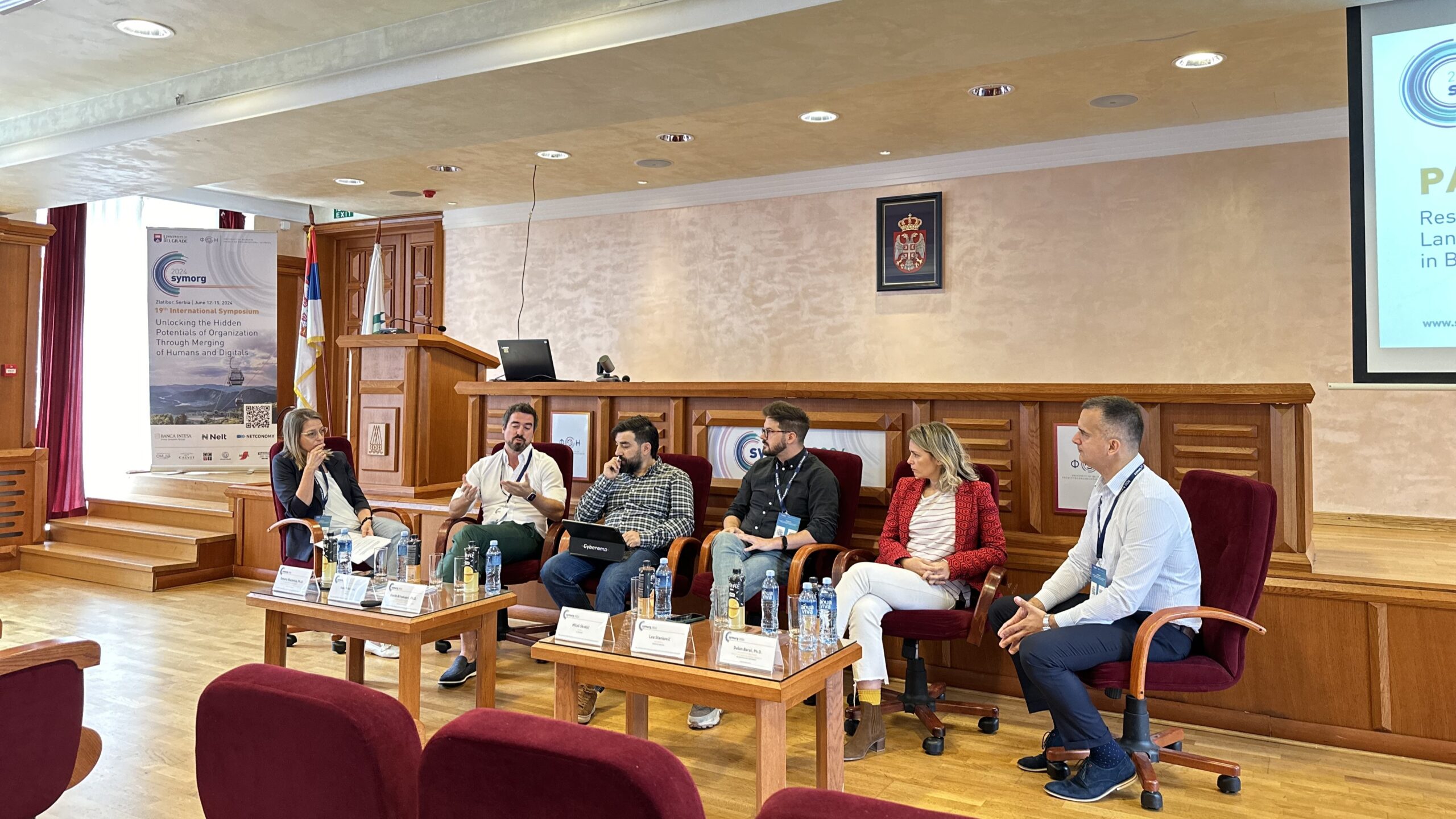
The next segment of the program was the Business Forum, moderated by Prof. Dr. Dejan Petrović, Head of the Department of Management and Project Management at the Faculty of Organizational Sciences, and Prof. Dr. Marko Mihić, Vice Dean for Strategic Development and Corporate Affairs at the Faculty of Organizational Sciences. The forum aimed to discuss how digital tools can improve productivity and efficiency within organizations and the challenges related to implementing these technologies. Forum participants included: Zorana Branković, Member of the Executive Board and Director of Operations at Banca Intesa, Marija Stanimirović, Director of Human Resources at SR Technics Group, Marko Cilić, Financial Director at Nelt Group, and Vukota Eraković, leader at Bosch.
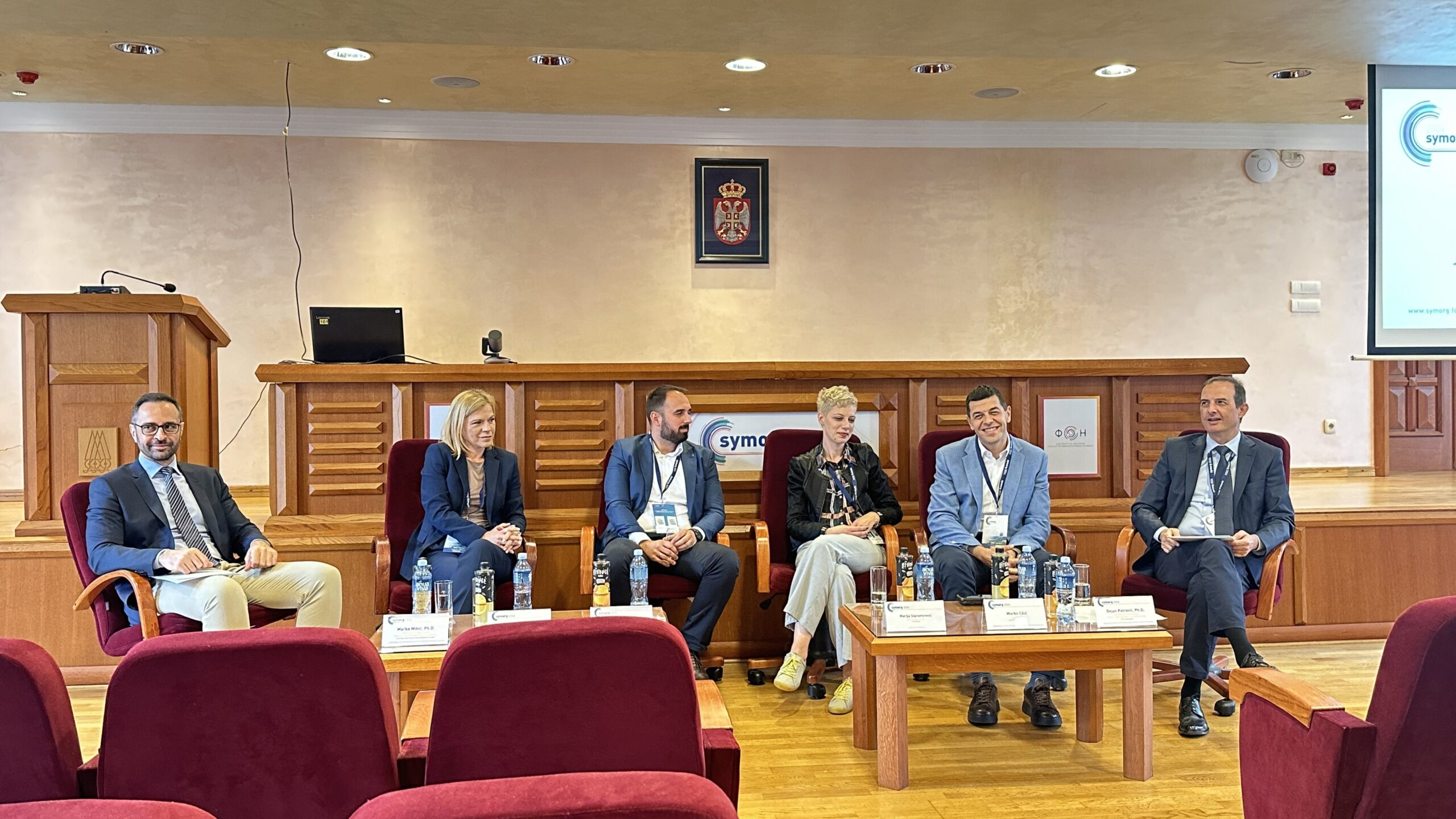
Simultaneously with the panel and forum, participants had the opportunity to discuss and exchange knowledge on key topics such as Challenges of Green and Digital Transformation, Creativity, Innovation and Sustainable Management, E-Business Ecosystems and Technologies, and Lean Management and Organization – Purpose, Process, People.
As the final part of the program, an Open Discussion Meetup was held, an informal gathering where participants discussed various topics: Digital Business Systems: Technologies and Innovation, led by Prof. Dr. Dušan Barać, Vice Dean for Digital Development at the Faculty of Organizational Sciences, and The Power of Connections: Networking for Startup, led by Ognjen Nikolić, Assistant at the Faculty of Organizational Sciences.
After the successful realization of the third day of the Symposium, a visit to the Open-Air Museum “Staro selo” in Sirogojno, near Zlatibor, was organized.
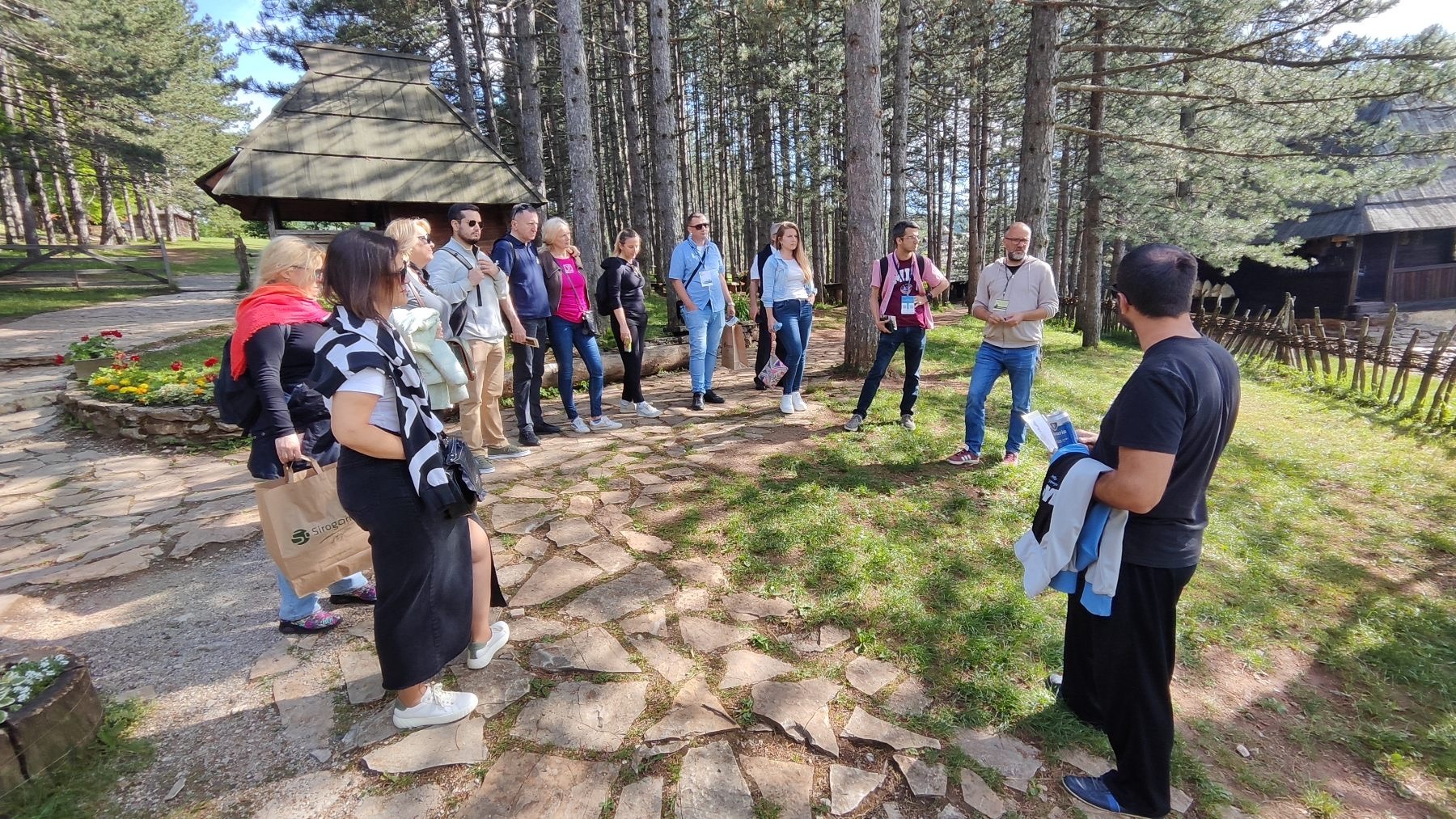
The last day of the Symposium began with a panel titled Round Table with Rectors and Deans under the theme Synergy of Humans and Technology in Higher Education. The panel moderator was Prof. Dr. Milan Martić, Dean of the Faculty of Organizational Sciences, who greeted the attendees and emphasized that the round table is being held for the second time with the aim of exchanging experiences among deans and vice deans from Serbia and the region. He particularly highlighted the importance of investing in human resources at the Faculty of Organizational Sciences, for which significant financial resources are allocated to improve the knowledge and skills of employees. Round table participants included: Prof. Dr. Saša Drezgić, Dean of the Faculty of Economics and Business in Rijeka, Croatia, Prof. Dr. Iztok Podbregar, Dean of the Faculty of Organizational Sciences in Kranj, Slovenia, Prof. Dr. Martina Tomičić-Furjan, Vice Dean for Science, Projects, and International Cooperation at the Faculty of Organization and Informatics in Varaždin, Croatia, Prof. Dr. Danimir Mandić, Dean of the Teacher Education Faculty, University of Belgrade, Prof. Dr. Darko Stefanović, Vice Dean for Science at the Faculty of Technical Sciences, University of Novi Sad, Prof. Dr. Dražen Drašković, Associate Professor at the School of Electrical Engineering, University of Belgrade, Prof. Dr. Dušan Barać, Vice Dean for Digital Development at the Faculty of Organizational Sciences, Nemanja Jevtović, President of the FON Employers’ Council and Advisor for Strategic Investments to the Government of the Republic of Serbia, and Dr. Aleksandar Jović, Assistant Minister for Higher Education in the Ministry of Education.
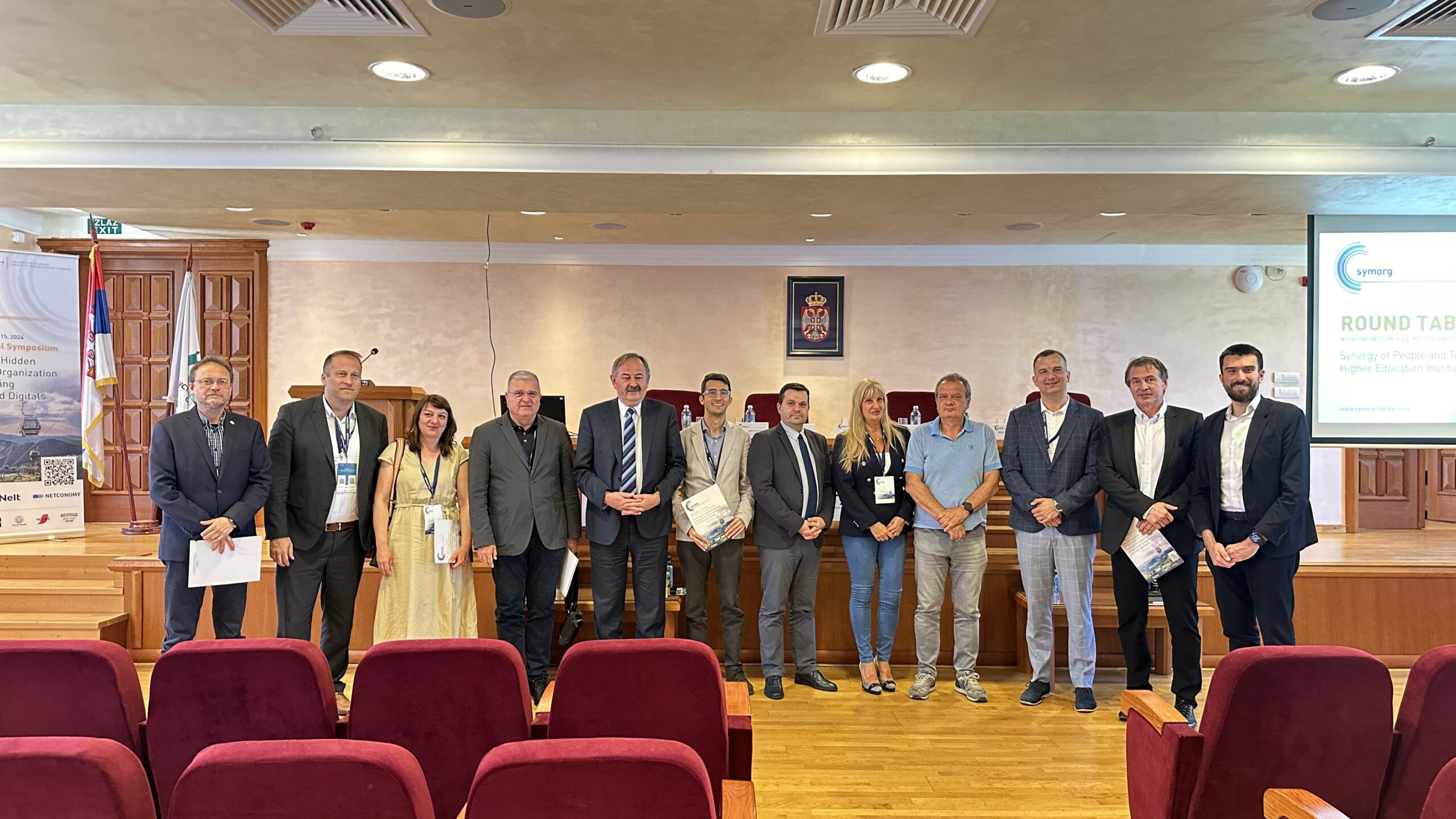
Following the speeches by all panelists, the International Symposium of the Faculty of Organizational Sciences SYMORG 2024 was officially closed with a cocktail reception for all attendees.
SYMORG 2024 attracted over 300 authors from 15 countries, with a total of 148 papers to be presented in the proceedings.


